4. Songs of the Poets.
Why should some poets seldom get set to music after their death, while others are perennially popular?
What is it about a text, in rhymed or free verse or even in prose, that attracts a composer? We shall look
at four writers who have inspired memorable settings, and ten composers who have tackled them—from England
in the first half, and America in the second.
I suggest you read the Texts handout before class. Although I
shall put each of the eight poems up on the screen, you would get more out of them if you had read them in
advance. As usual, the script, videos, and images will be posted immediately after class.
Q AND A
How do I use the links below
A question in class today made me realize that what worked best for me on a Windows desktop computer might not
be idea for other devices. So I have changed the way that links work. Instead of opening in a new
window, they now take over from the current page. So just use the back button or arrow to return to it.
Do you know Loreena McKennitt's Cymbeline?
No I didn't, but now I do. John and Marianna asked me this after class.
Here and here are the links they sent to two versions of her
folk-inspired setting of "Fear no more the heat o'the sun." The first has an explanatory introduction; the
second is a longer version, more obviously Celtic.
VIDEO LINKS
| |
|
|
|
|
 |
|
Shakespeare: "Who is Silvia"
Song from The Two Gentlemen of Verona
Read by David Hart |
Schubert: "Who is Silvia?"
Sung by Janet Baker
With Murray Perahia, piano |
|
 |
 |
|
Schubert: "Who is Silvia?"
Sung by the Kings Singers
Arranged for a capella sextet |
Finzi: "Who is Silvia?"
Sung by Ian Bostridge
With Antonio Pappano, piano |
|
 |
 |
|
Shakespeare: "Fear no more…"
Dirge from Cymbeline
Reading and video by Dana Andreea Nigrim |
Finzi: "Fear no more…"
Sung by Michael George
Orchestra and conductor unknown |
|
 |
 |
|
Mark Lanz Weiser: A Renaissance Serenade
Last movement: "Fear no more the heat of the sun"
Charmaine Hamann with the Peabody Concert Orchestra; c. Hajime Teri Murai |
William Blake: "London"
From Songs of Experience
Peformed by Testament in BBC video |
|
 |
 |
|
Britten: Songs and Proverbs of William Blake
Opening: "The pride of the peacock" & "London"
Sung by Simon Lobelson with Jack Symonds |
Michael Griffin: "London"
Setting of the Blake poem
Artwork by George Morton-Clark (pictured) |
|
 |
 |
|
Emily Dickinson
Dickinson: "Will there ever be a morning?"
Read by Barbara Cole |
Ricky Ian Gordon
"Will there ever be a morning?"
Sung by Camellia Johnson, with the composer |
|
 |
 |
|
André Previn
"Will there ever be a morning?"
Sung by Jamie-Rose Guarine |
Craig Hella Johnson
"Will there ever be a morning?"
Sung by the composer, with Biong Tsang, cello |
|
 |
 |
|
Emily Dickinson
"Heart, we will forget him"
Video posted anonymously |
Copland: "Heart, we will forget him"
From "Eight Poems of Emily Dickinson"
Dawn Upshaw, St. Paul Chamber Orchestra, c. Hugh Wolff |
|
 |
 |
|
T. S. Eliot: The Waste Land
Reading by Alec Guinness (audio)
Complete, cued to Part V |
Adrian Dunbar: The Waste Land
trailer of 2015 multimedia production
Music by Nick Roth |
|
 |
 |
|
T. S. Eliot: "The Rum Tum Tugger"
from Old Possum's Book of Practical Cats"
Read by the author (audio) |
Lloyd Webber: CATS
Rum Tum Tugger scene
featuring John Partridge |
|
 |
IMAGES
The thumbnails below cover the slides shown in class. Click the
thumbnail to see a larger image.
Click on the right or left of the larger picture to go forward or back,
or outside it to close. |
 |
|
 |
|
 |
|
 | |
 | |
 | |
 | |
 | |
 | |
 | |
 | |
 | |
 | |
 | |
 | |
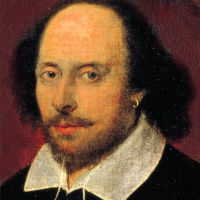 |
William Shakespeare, 1564–1616. English poet and playwright.
With almost 40 plays, 154 sonnets, and many longer poems, Shakespeare dominates English literature of his time, and world literature for ever after. To attempt a thumbnail biography would be both unnecessary and impossible.
|
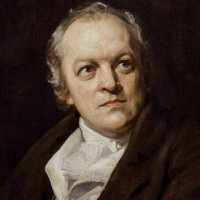 |
William Blake, 1757–1827. English printmaker, painter, and poet.
His work spans the late classical and early romantic periods, but his style in each of his many media is sui generis and infused with a strongly mystical bent.
|
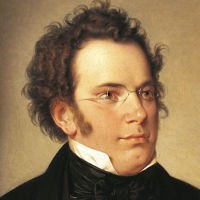 |
Franz Schubert, 1787–1828. Austrian composer.
Although he died before his 32nd birthday, Schubert was extremely prolific as a composer, writing symphonies, masses, chamber music, piano sonatas, and over 600 songs, both individually and in cycles. Though little known in his lifetime, his work was rediscovered and championed by Mendelssohn, Liszt, and Brahms, making him in effect the source of the German Romantic movement.
|
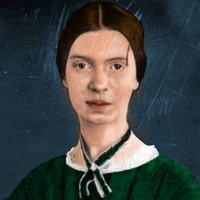 |
Emily Dickinson, 1830–86. American poet.
As she lived in Amherst for her entire life, latterly refusing to leave her family home, Dickinson's prolific output was virtually unpublished in her lifetime, and was subject to editing after her death to bring it more in tune with contemporary aesthetics. But it is precisely the unconventional nature of her verse, with its short lines and slant rhymes, that has led to her recognition as one of the leading American poets of her time.
|
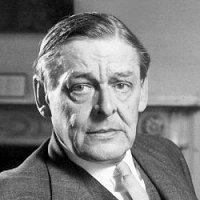 |
Thoman Stearns (T.S.) Eliot, 1888–1965. American-British poet.
One of the leading modernist poets of the 20th century, known for works such as The Waste Land (1922) and Four Quartets (1936–42), Eliot also found success in the theatre with works such as Murder in the Cathedral (1935). His light verse collection Old Possum's Book of Practical Cats (1939) was the source for Andrew Lloyd Webber's Cats.
|
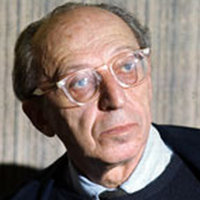 |
Aaron Copland, 1900–1990. American composer.
Trained in Paris, Copland began writing in the style of the European avant garde, but in his ballet commissions in the 1930s and 1940s, such as Billy the Kid, Rodeo, and Appalachian Spring, he developed the open folk-inflected style that has become, for many people, the sound of American music.
|
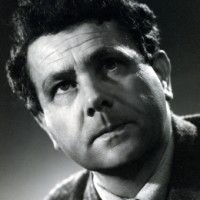 |
Gerald Finzi, 1901–56. English composer.
Although he composed in other genres, Finzi is best known for his vocal works, such as the cantata Dies Natalis (1939), his Shakespeare cycle Let Us Garlands Bring (1942), and many settings of Thomas Hardy.
|
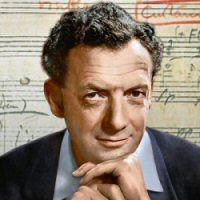 |
Benjamin Britten, 1913–76. English composer.
Arguably the leading opera composer of the mid-20th century, Britten's major operas have included Peter Grimes (1945), Billy Budd (1951), Gloriana (1953), A Midsummer Night's Dream (1960), and Death in Venice (1973), plus many stage works for smaller forces. He was equally active as a composer of instrumental music and text settings, and latterly as a conductor and accompanist.
|
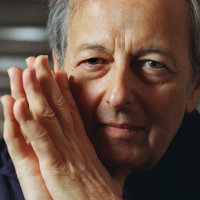 |
André Previn, 1929–2019. German-American composer and conductor.
A multi-talented musician, Previn escaped Germany with his family in 1938 and traveled to California via Paris. Even as a teenager, he started composing music for MGM films, and eventually won four Oscars. Meanwhile, he was establishing himself as a jazz pianist. His career as a classical conductor played out in directorships in Houston, London, LA, Pittsburgh, and Oslo, with guest appearances all over the world. In later years, he put most of his energies into composition, writing the successful opera A Streetcar Named Desire (1998) and numerous other works.
|
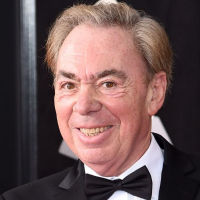 |
Andrew Lloyd Webber, 1948– . English composer.
Baron Lloyd-Webber is credited with reinvigorating the stage musical with a series of hits that include Jesus Christ Superstar (1970), Evita (1976), CATS (1981), and The Phantom of the Opera (1986). He has also written a certain amount of non-theatrical music, including an anthem for the coronation of King Charles III.
|
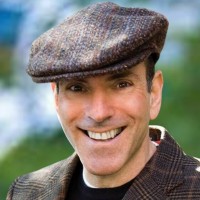 |
Ricky Ian Gordon, 1956– . American composer.
Gordon has written several stage works, both opera and musical theater, and numerous songs that have been performed by headline artists.
|
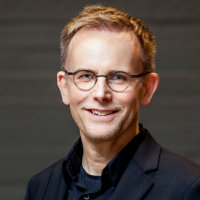 |
Craig Hella Johnson, 1962– . American composer.
Born in Minnesota, Johnson has established himself as a leading composer and conductor of choral music. He directed the group Chanticleer before founding his own ensemble Conspirare in 1991. His recordings have been nominated for 8 Grammys. He adopted the middle name "Hella" in tribute to the Norwegian birthplace of his parents.
|
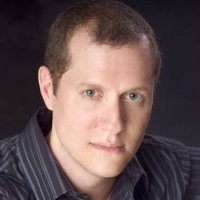 |
Mark Lanz Weiser, 1968– . American composer.
While still a student at the Peabody Conservatory, Weiser wrote the opera Where Angels Fear to Tread (2002) to an adaptation of the EM Forster novel by Roger Brunyate; this received its professional premiere by Opera San Jose in 2015. He has since gone on to write seven other operas and numerous orchestral and instrumental works. He teaches at the USC Thornton School of Music in Los Angeles.
|
 |
Nick Roth, 1985– . American composer.
Roth's online biography is too good not to quote: "His work seeks the liberation of improvisation from composition, the poetic syntax of philosophical enquiry, and the function of music as translative epistemology." He has been honored by residencies all over Europe and the US.
|

















































